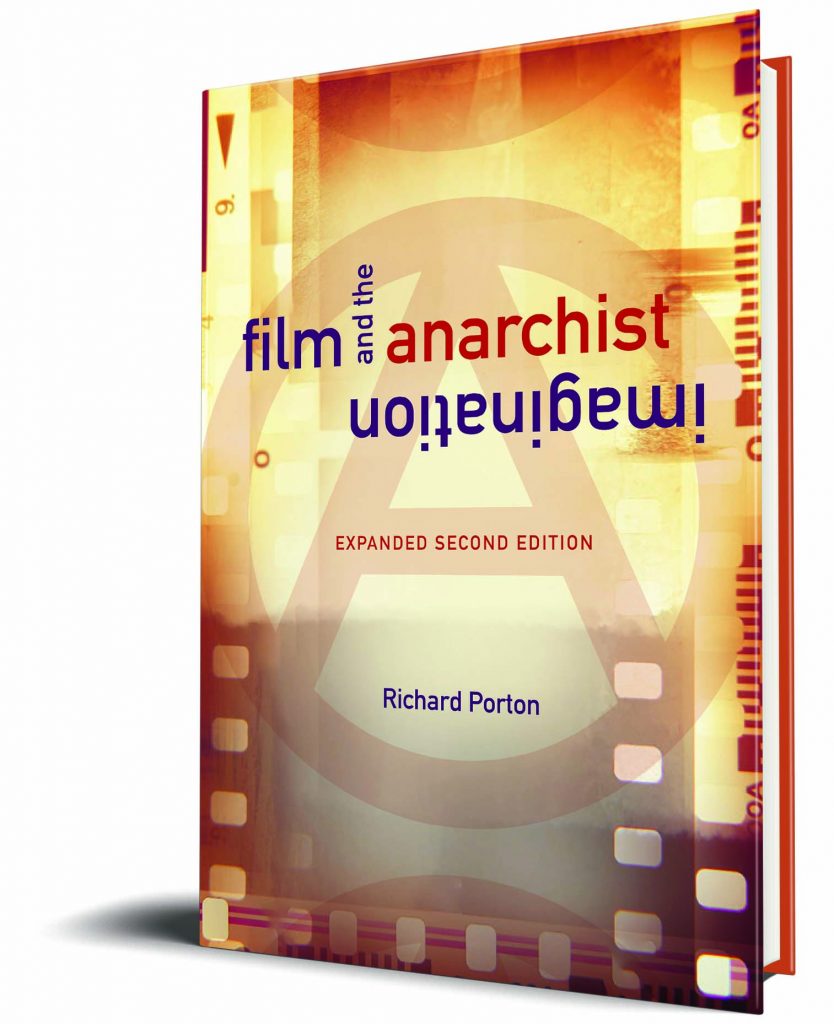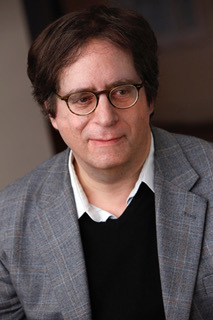
Richard Porton, the author of Film and the Anarchist Imagination, shares the inspirations and discoveries behind the expanded second edition of his exploration of anarchism’s images, ideas, and influence in cinema.
Q: Why did you decide to write this book?
When I began researching the first edition during the 1980s, I realized that there wasn’t a comprehensive, book-length survey of a subgenre that could be labeled “anarchist cinema.” So, to a certain extent, writing the book involved mapping a tradition that few thought even existed. Radical cinema was usually associated with non-anarchist movements such as Soviet montage and post-revolutionary Cuban cinema. Even erudite cinephiles couldn’t conceive of an explicitly political and historical notion of anarchist cinema. The British critic Alan Lovell had, some years before, published a very brief monograph called Anarchist Cinema, which was basically a study of three filmmakers: Jean Vigo, Luis Bunuel, and Georges Franju. That, and some scattered articles and reviews in anarchist periodicals, was about it. So, in many respects, the book was meant as something of a corrective—or an antidote to conventional modes of thinking.
Q: Who were your biggest influences?
Although there are a number of critics and historians I admire, it would be arrogant to cite any as tangible “influences.” Instead, I’d just say that there are a number of writers I admire, but whose talent and insight I could never hope to replicate. In terms of this project specifically, I ‘ve always been impressed with the way that the late Paul Avrich, the leading American chronicler of anarchism, synthesized great narrative sweep with historical commentary. Activist theorists/historians such as Murray Bookchin and David Graeber were constant inspirations. Since the book is as much a work of film criticism as film history, I’m indebted to a plethora of film critics and academics. But some of these critics and academics are friends and I’d be loath to name any of them in the event of inadvertently slighting someone I’ve overlooked.
Q: What is the most interesting discovery you made while researching and writing your book?
While working on the second, expanded edition of the book, I was heartened by the fact that there’s now a burgeoning community of filmmakers who are knowledgeable about anarchism and unashamed to say so. During the 1930s, the CNT, an anarcho-syndicalist trade union, produced explicitly anarchist films during the Spanish Civil War (or, as the anarchists like to say, the “Spanish Revolution”). In 1999, when the first edition was published, New York’s Pacific Street Film Collective (now called Pacific Street Films) was one of the few surviving groups with a similar mission. Shortly after the publication of the first edition in 1999 and the rise of anti-corporate globalization movements, anarchism was no longer regarded as a quaint nineteenth-century creed. Filmmaking followed suit and a selection of relatively recent anarchist films are discussed in the new edition’s Afterword. Perhaps that’s not precisely a “discovery.” But working on a second edition confirmed that the climate of opinion concerning cinema and anarchism had changed.

Q: What myths do you hope your book will dispel or what do you hope your book will help readers unlearn?
As with the first edition, I wanted to dispel cliched assumptions about anarchism and anarchists, particularly the conviction, which has now resurfaced with Trump’s incendiary rhetoric, that anarchists are nothing but violent, irrational terrorists. Of course, it would be a mistake to go in the other direction and claim that anarchists have always been pacifists. But a nuanced treatment of the extremely complex history of anarchism, and its relationship to cinema, encompasses advocates of propaganda by the deed as well as Tolstoyan pacifists— and individualists and syndicalists as well as anarcho-communists. Dwelling on these distinctions inspired a bemused reviewer in Sight & Sound to refer to me as a “hair splitter” in 2000. But neither anarchist politics nor anarchist cinema are monolithic entities.
Q: What is the most important idea you hope readers will take away from your book?
I’m quite ecumenical in my conception of anarchist cinema and include many films by directors who are not self-identified anarchists but whose work reflects what I’d call an anarchist or anti-authoritarian impetus. As the late, great Stuart Christie, the founder of the invaluable Anarchist Film Channel, observed some years ago in The Guardian, “films made by anarchists can be very boring indeed”…one should also consider lots of anti-authoritarian films made by non-anarchists.” So, even though I’ve been criticized for refusing to define “anarchist cinema,” readers should reject rigid assumptions that the cinematic anarchist imagination has to conform to a particular aesthetic or sectarian tendency. That’s probably the primary “takeaway.” As I maintain, to the irritation of some critics, the anarchist aesthetic is “elusive.”
Q: What do you like to read/watch/or listen to for fun?
Although I attended online editions of the Toronto and New York film festivals during the pandemic and saw some films I liked, I’ve derived the most pleasure from re-screening some classics on DVD. I was particularly intrigued to revisit some vintage Hollywood films such as Mitchell Leisen’s Hold Back the Dawn and Billy Wilder’s The Apartment and concluded that they hold up quite well in 2020. As far as reading material is concerned, I’ve been sampling several rather lengthy books that I’ve yet to finish—Mike Davis and Jon Wiener’s Set the Night on Fire: L.A. in the Sixties and Roberto Calasso’s The Celestial Hunter. For cinephiles, Bill Krohn’s recently published Letters From Hollywood, 1977-2017 is a fun anthology to dip into at one’s leisure. And I might eventually get around to reading Elena Ferrante’s new novel, The Lying Life of Adults.
